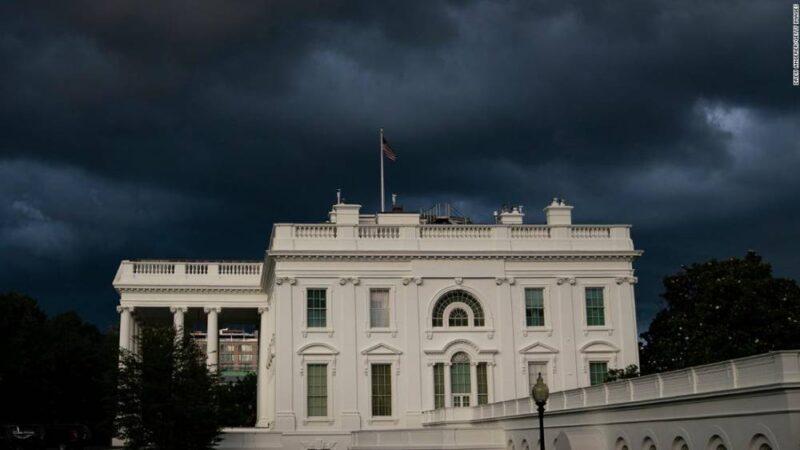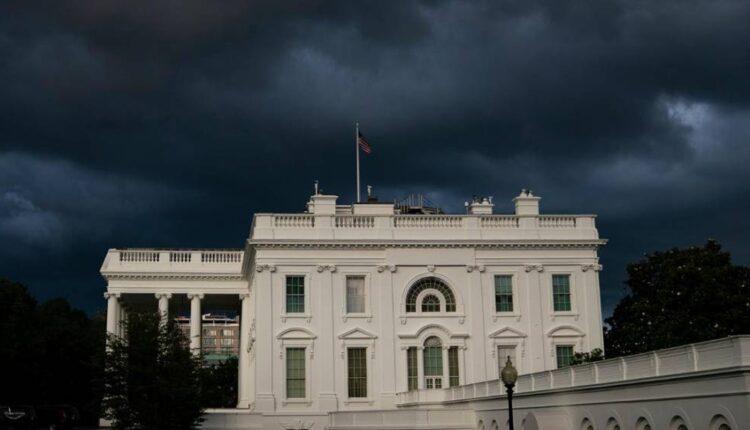New York (CNN Business)Even Corporate America thinks Wall Street’s meteoric recovery may be getting out of hand.
A stunning 84% of Fortune 500 CFOs say the US stock market is overvalued, according to a survey released Thursday by Deloitte. That’s up from the 55% who felt that way a quarter ago. Just 2% of finance chiefs say US stocks are undervalued.The findings add to the mounting evidence suggesting the slingshot rise in stocks created in part by the Federal Reserve may be overdone.

Wall Street's worst nightmare isn't Trump or Biden. It's no clear winner at all Even as elevated levels of unemployment show that the real economy is still suffering from the pandemic, the S&P 500 has skyrocketed 55% since its March 23 lows. Not only has the index recovered all its losses, but it’s even set new highs. The Nasdaq has climbed a staggering 70% over that span.Yet the leaders of Corporate America are not nearly as euphoric as Wall Street’s blockbuster numbers would suggest. Read MoreCFOs’ optimism about their own companies rebounded sharply off record lows, 60% of those surveyed by Deloitte say the North American economy is in bad or very bad shape. Just 7% say economic conditions are good. For the first time in the decade Deloitte has been doing the survey, CFOs were more bullish on the Chinese economy than on North America’s.Moreover, the percentage of CFOs who expect better economic conditions in the next year in North America dropped from 58% to 42%. Taken together, Deloitte said the findings suggest “growing skepticism about the pace going forward.”
Market valuations near 20-year highs
Yet there appears to be little of that skepticism on Wall Street as investors pile into stocks in response to unprecedented easy money from the Fed.The surge in stock prices has driven traditional valuation metrics to levels unseen in decades. The S&P 500 closed Tuesday at 22.6 times projected earnings, according to FactSet. That price-to-earnings ratio is well above the five and 10-year averages of 17.1 and 15.4, respectively. In fact, it’s just a touch below the peak P/E ratio, which hit 22.9 on June 8. That was the highest P/E ratio since September 2000, just before the implosion of the dotcom bubble.Citigroup’s Panic/Euphoria Model is the most euphoric it has been since the dotcom bubble, recently hitting levels that in the past signaled stock market declines to come. And the CNN Business Fear & Greed Index is solidly in “greed” territory, though it remains out of “extreme greed,” at least for now.
FOMO is real
Taking advantage of this market euphoria, a steady stream of companies are racing to cash in by selling their stock to the public. There have been 41 public offerings worth a total of $16.4 billion this month alone — the most for the month of August on record, according to research firm Dealogic. That includes IPOs as well as offerings through special purpose acquisition companies, or SPACs. In recent weeks, unicorns including Airbnb and Palantir have revealed their intent to go public, too.

Companies like Palantir are racing to IPO while stocks are hot”Sentiment is increasingly positive, and the fear of missing out is becoming a powerful driver for investors to get back in the market,” Brad McMillan, chief investment officer at Commonwealth Financial Network, wrote in a note on Wednesday.McMillan urged investors to stay rational. “We should not get caught up in the excitement,” he said. “All-time highs are great, and they often lead to further highs. But they can also signal increased risk.”
Easy money underpins optimism
Of course, there are some valid reasons for market valuations to have climbed so sharply. Investors typically sniff out economic recoveries long before Main Street feels them. And even though GDP collapsed during the second quarter, a rebound is clearly underway. The Atlanta Fed’s GDPNow model is calling for GDP to climb by a 25.6% annualized rate in the third quarter. Corporate America’s bottom line is shrinking, but maybe not by as much as feared. Per-share earnings were nearly $8 better than expected during the first half of the year, according to Citi. Some forecasts for 2021 are also rising.And there are hopes of a medical breakthrough that makes it easier to treat or even vaccinate against coronavirus.

Exxon was the world's largest company in 2013. Now it's being kicked out of the DowThe real key to the market recovery is the Fed. By slashing interest rates to zero and promising to keep them there for the foreseeable future, the US central bank is essentially forcing investors to bet on stocks. The returns on ho-hum government bonds just don’t look attractive.”Stocks are just not that high compared to the tremendously overvalued bond market,” said Michael Kelly, who leads the global multi-asset business at PineBridge Investments. Kelly said he’s not concerned that stocks are in a bubble because the Fed is likely to keep interest rates extremely low for a very long time. If that happens — and corporate earnings rebound — then stocks would look like a good deal.”If cash flows can get back to where they were,” Kelly said, “then everything is rational.”
‘Shades of 1999’ but…
Some market skeptics are throwing in the towel.Citi had been warning the S&P 500 could drop to 2,900 (from nearly 3,500 today) by year-end. But in a reversal, Citi on Monday raised its year-end target to 3,300 in part because of “unbridled Fed easing.””Despite euphoric readings on our sentiment metric and less attractive valuation, equities continue to advance and may appreciate more if investors want to chase the tape,” Tobias Levkovich, Citi’s chief US equity strategist wrote in a note to clients on Monday. “Indeed, we see shades of 1999 but the Fed started tightening then and there’s no hint of a repeat now. “If anything, the Fed is making it very clear that it plans to support the economy, and by extension the market, for as long as it takes.
“We still think the market may be ahead of itself but the Fed will do ‘whatever it takes’ to prevent US stocks declining by teen-like percentages,” Levkovich wrote. In other words, markets might be overvalued, but that doesn’t really matter if the Fed keeps its foot on the pedal.
Source: edition.cnn.com

